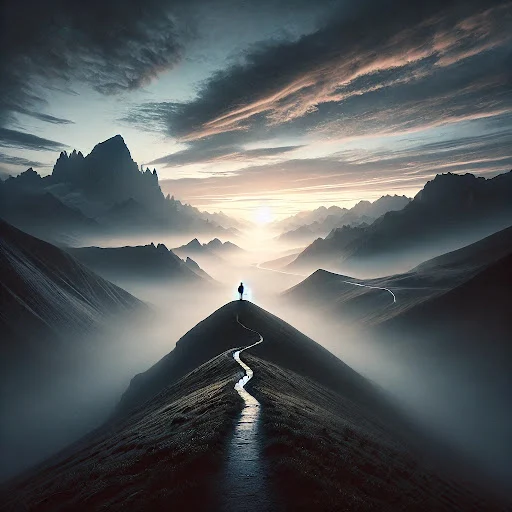When everything seems lost — wait. The abyss is in no hurry. It simply exists, silent and patient, while you still breathe. Still feel. Still can.
The climb does not ask for heroes. It does not require epics, glory, or the sound of trumpets announcing impossible feats. It only asks for someone willing to go on. To move forward, even without knowing if the path is right.
Distance does not matter. Life has no ruler to measure its worth. Delay does not matter. Time is a strange creature — sometimes gentle, sometimes cruel, but never final. Danger does not matter. Fear is only a mirror, reflecting what you believe yourself to be.
Living is this: one step. Then another. Then another. And before you know it, you have gone beyond.


Comments
Post a Comment